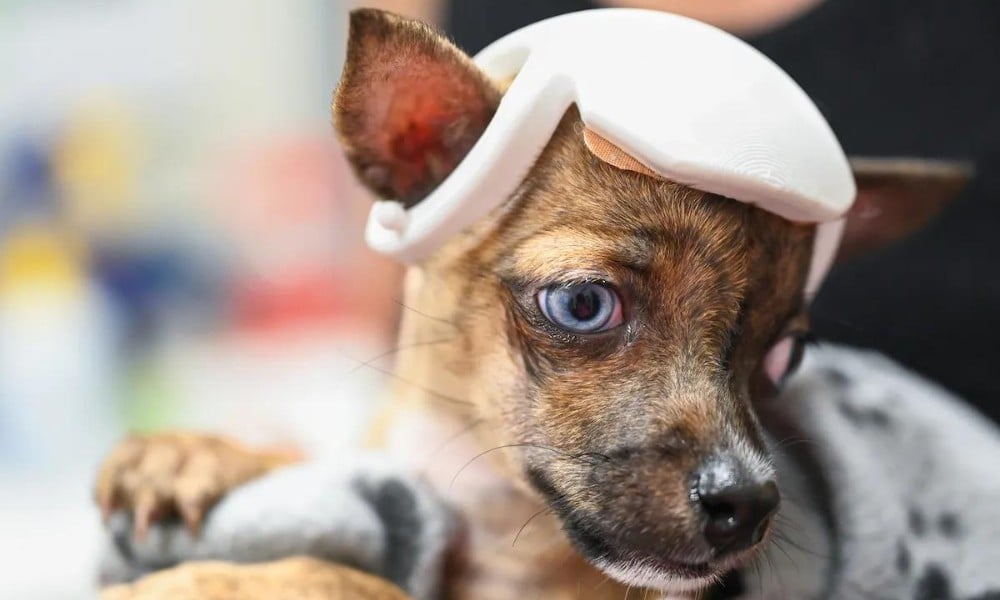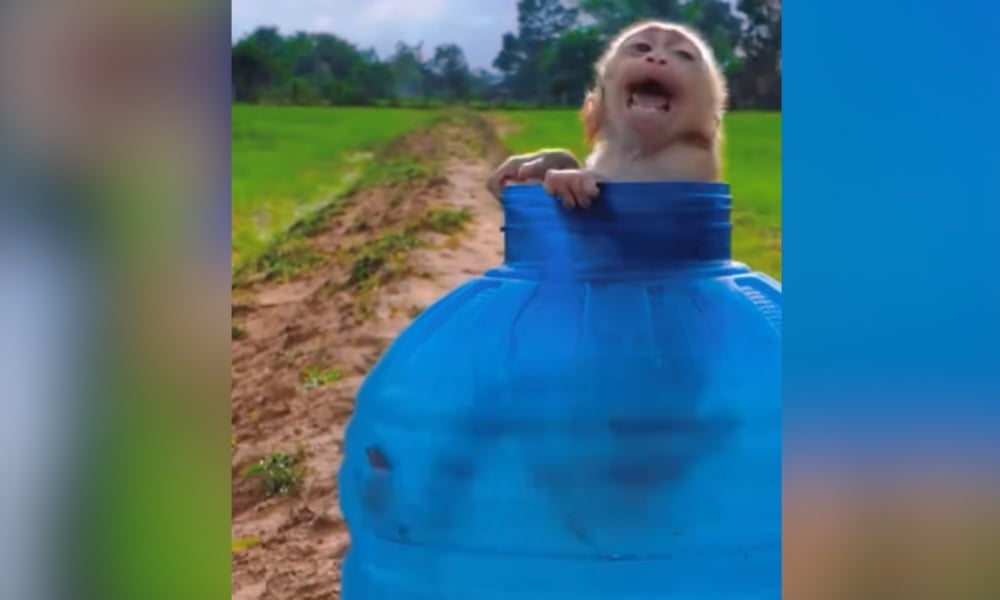Niblett is a tiny Chihuahua puppy with a rare medical condition: hydrocephalus. Fortunately, he’s been given the chance to have a happy and healthy life, thanks to the innovative use of a 3D printer by some graduate students at the University of Tennessee, Chattanooga (UTC).
Niblett was lively and playful when he showed up at the Humane Educational Society (HES) in Chattanooga, but a soft spot on the top of his head caught the staff’s attention. They realized that his skull had not fully fused and the soft spot put him at an increased risk of getting hurt, which could be deadly in little Niblett’s case.
“It makes him very susceptible to any kind of injury,” HES Director of Veterinary Services Sarah Callahan told UTC’s blog. “Simple things falling around the house could hurt him.”
Hydrocephalus can be life-threatening in dogs; symptoms can involve clumsiness, a lack of coordination, and trouble walking.
The HES staff began brainstorming how to protect Niblett’s head when animal services officer Dr. Samantha Blair had an idea and reached out to the UTC College of Engineering and Computer Science’s Chemical Engineering program, for help.
Dr. Blair was then connected to Dr. Trevor Elliott, an associate professor in the College of Engineering and Computer Science. Elliott and recent graduate Connor Mackey were eager to use their 3D printing skills to help Niblett.
After obtaining a scan of Niblett’s head, and the team began creating the perfect protective head gear. After trying various designs, 10-week-old Niblett preferred Mackey’s football helmet model. With his new 3D-printed cap keeping his brain safe, he can play and learn like any other puppy.
The Humane Education Society posted on Facebook that Niblett is now in foster care, waiting for his forever home.








